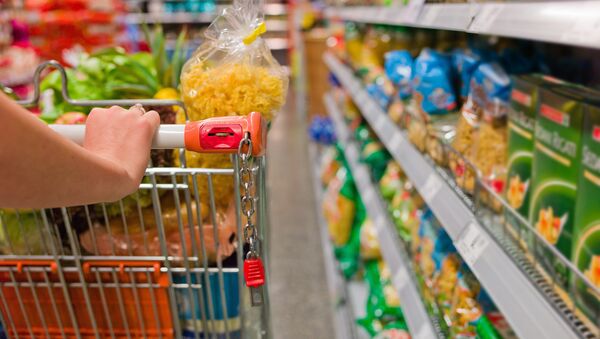The move has caused some positive effect for a number of domestic industries.
"In the first half of this year GDP growth surprised market slightly on the upside, which was partly attributed to strong manufacturing performance. We’ve seen an increase in output in such sectors as chemicals, pulp and paper industry, some particular food industries, and we suggest it was an example of import substitution resulting from some Russian domestic industries becoming more competitive compared to their international peers," said Oleg Kouzmin, an analyst at Renaissance Capital in Moscow.
In May this year, the Russian President instructed the government to develop an import substitution plan for industry and agriculture for 2014-2015. The aim is to increase the output of agricultural products, raw materials, and food, as well as reduce dependence of the food market on imported meat from 21.6 percent to 7.7 percent, on milk and dairy products from 23.6 percent to 16.6 percent, and on vegetables from 14.6 percent to 10.1 percent, all of this within the next six years.
Most Russian producers are welcoming the new roadmap on the country’s import-export balance as many of them have already evidenced a substantial increase in their profits. However, economists are rather skeptical and point out to the short-term positive effects of import substitution. On the other hand, could sanctions speed up the process of diversification of the Russian economy and introduction of structural reforms? We addressed this question to World Bank Lead Economist for Russia Birgit Hansl.
“I think it’s an interesting question and an interesting proposition. I believe if we assume the current situation of geopolitical tensions and sanctions continues, there is certain competition for attention of policy-makers, and the highest attention will be always for measures to stabilize the macroeconomic fundamentals. Unfortunately, I see a kind of trade-off between these choices, it is really difficult to focus on stability measures and at the same time think very deeply about structural constraints to the economy,” Birgit Hansl said.
With other more pressing issues obviously on the priority list of policy-makers in the next couple of years – like GDP growth, capital flight and many others, it’s most likely the long-awaited structural reforms, which are so badly needed to make Russian economy globally more competitive, will have to be put into cold storage, yet again.

